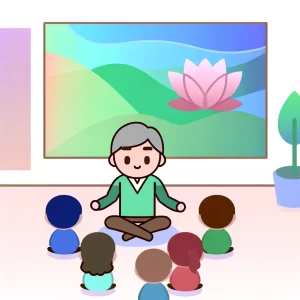
Cultivating Hope: How School Psychologists Can Aid Refugee Children Through Culturally Responsive Trauma-Informed Therapy
In a world where millions are displaced due to conflicts and human rights violations, the plight of refugee children, often overlooked, demands our urgent attention. The recent article titled “The Mental Well-Being and Inclusion of Refugee Children: Considerations for Culturally Responsive Trauma-Informed Therapy for School Psychologists” delves into the complex mental health challenges faced by these young souls and offers a beacon of hope through culturally responsive trauma-informed therapy.
The Invisible Scars of War
Refugee children, having borne the brunt of war, carry with them not just physical displacement but profound psychological scars. The paper illuminates how these children are direct victims of war trauma, confronting fear, anxiety, and often displaying aggressive behaviors as a response to their harrowing experiences. It becomes clear that the war follows them, casting a long shadow over their lives even in post-migration phases.
The Crucial Role of School Psychologists
School psychologists stand at the forefront of addressing these deep-seated issues. However, the article points out a concerning underpreparedness in schools for diversity and inclusion, emphasizing the need for psychologists to be well-versed in evidence-based, culturally appropriate treatments.
Understanding Culturally Responsive Trauma-Informed Therapy (CRT)
The heart of the study lies in advocating for Culturally Responsive Trauma-Informed Therapy (CRT). This approach acknowledges the diverse cultural backgrounds and indigenous healing practices of refugee children, integrating them into the therapeutic process. CRT is not just a method but a holistic framework that resonates with the children’s cultural narrative, offering a more empathetic and effective pathway to healing.
Challenges and Recommendations
the study also sheds light on various challenges – from the rarity of adequate mental health services for refugees to the complexities arising from their unique cultural backgrounds. It suggests that CRT, when integrated into trauma-informed therapies, can be revolutionary, particularly in school settings. By placing the learner’s culture at the center of their healing process, school psychologists can create an environment of genuine support and understanding.
Bridging the Gap Through Inclusion and Empathy
The adoption of CRT in schools is more than a clinical approach; it’s a step towards a more inclusive and empathetic society. By understanding and embracing the cultural nuances of refugee children, school psychologists can not only aid in their mental well-being but also pave the way for their successful integration into society.
Join the Educational Revolution!
Begin your adventure with This Week in School Psychology for only $5 a month or $50 annually. Be at the forefront of educational breakthroughs and mental health insights. Subscribe to become a beacon of knowledge in your community, simplifying the complex world of educational research. Why wait? Ignite your passion for learning today and enjoy exclusive savings with our annual plan!



